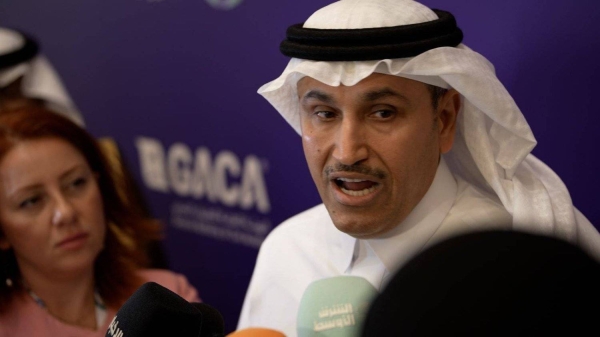The Minister of Transport and Logistics, Eng. Saleh Al-Jasser, recently announced significant updates and legislative reforms in the Civil Aviation Law in Saudi Arabia. These reforms aim to achieve the goals set out in the National Civil Aviation Strategy, which include serving 300 million passengers and reaching 250 destinations globally. The reforms will focus on economic regulations, customer services, and airspace management, and will involve collaboration with various authorities responsible for ground handling services, catering, maintenance, and security services at airports. Al-Jasser highlighted the ministry’s strategies related to tourism, Hajj, and Umrah sectors, emphasizing the expansion and construction of several airports across the kingdom.
During a press conference at the Future Aviation Forum in Riyadh, Al-Jasser mentioned ongoing airport projects in Saudi Arabia. This includes the development of King Salman International Airport in Riyadh, which is expected to become one of the largest airports in the world with a capacity of up to 100 million passengers by 2030. Other projects such as the expansion of King Abdulaziz International Airport in Jeddah, the recently opened Red Sea International Airport, and the upcoming NEOM International Airport are also in progress. The minister highlighted the expansion efforts at various airports such as Jazan, Al-Baha, and Al-Jouf, as well as the major expansion of Prince Muhammad bin Abdulaziz Airport in Madinah in partnership with the private sector.
In addition to airport expansions, the aviation sector in Saudi Arabia is witnessing significant investment projects. The introduction of the new “Riyadh Air,” wholly owned by the Public Investment Fund, is a notable development. This new airline has announced plans to acquire more than 78 wide-body aircraft, signaling ambitious goals for its launch in 2025. Furthermore, the national carrier, Saudi Arabian Airlines, is consolidating its operations and establishing a main aviation hub at King Abdulaziz International Airport in Jeddah. The airline has recently announced deals for 40 wide-body aircraft and 105 narrow-body aircraft, demonstrating its commitment to growth and modernization.
The reforms and investments in the aviation sector in Saudi Arabia are part of the country’s broader vision to enhance its infrastructure and services. These developments will not only benefit the domestic aviation industry but also contribute to the growth of tourism and other sectors. With a focus on improving customer services, economic regulations, and overall airport management, Saudi Arabia is positioning itself as a key player in the global aviation market. The expansion of airports, the establishment of new airlines, and the acquisition of modern aircraft all reflect the kingdom’s determination to become a leading aviation hub in the region.
As Saudi Arabia continues to prioritize the development of its aviation sector, these reforms and investments will play a crucial role in realizing the goals set out in the National Civil Aviation Strategy. By focusing on enhancing infrastructure, services, and operations at airports, the kingdom is poised to attract more passengers and expand its reach to international destinations. With a clear roadmap for the future, Saudi Arabia’s aviation industry is set to experience significant growth and transformation in the coming years, further solidifying its position as a key player in the global aviation market.










